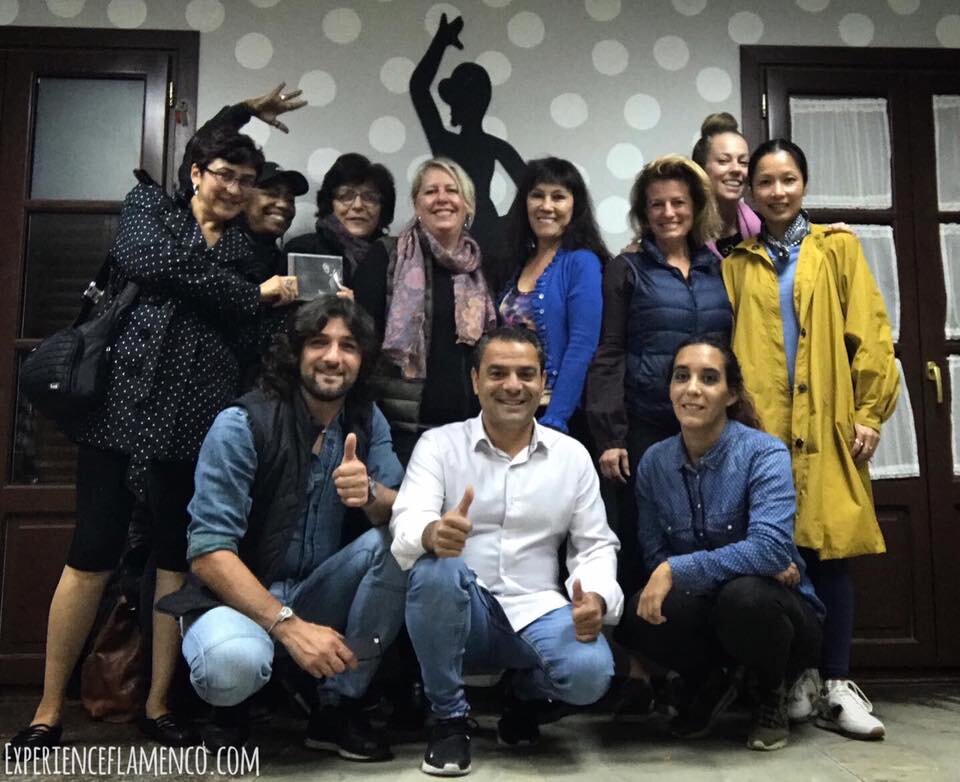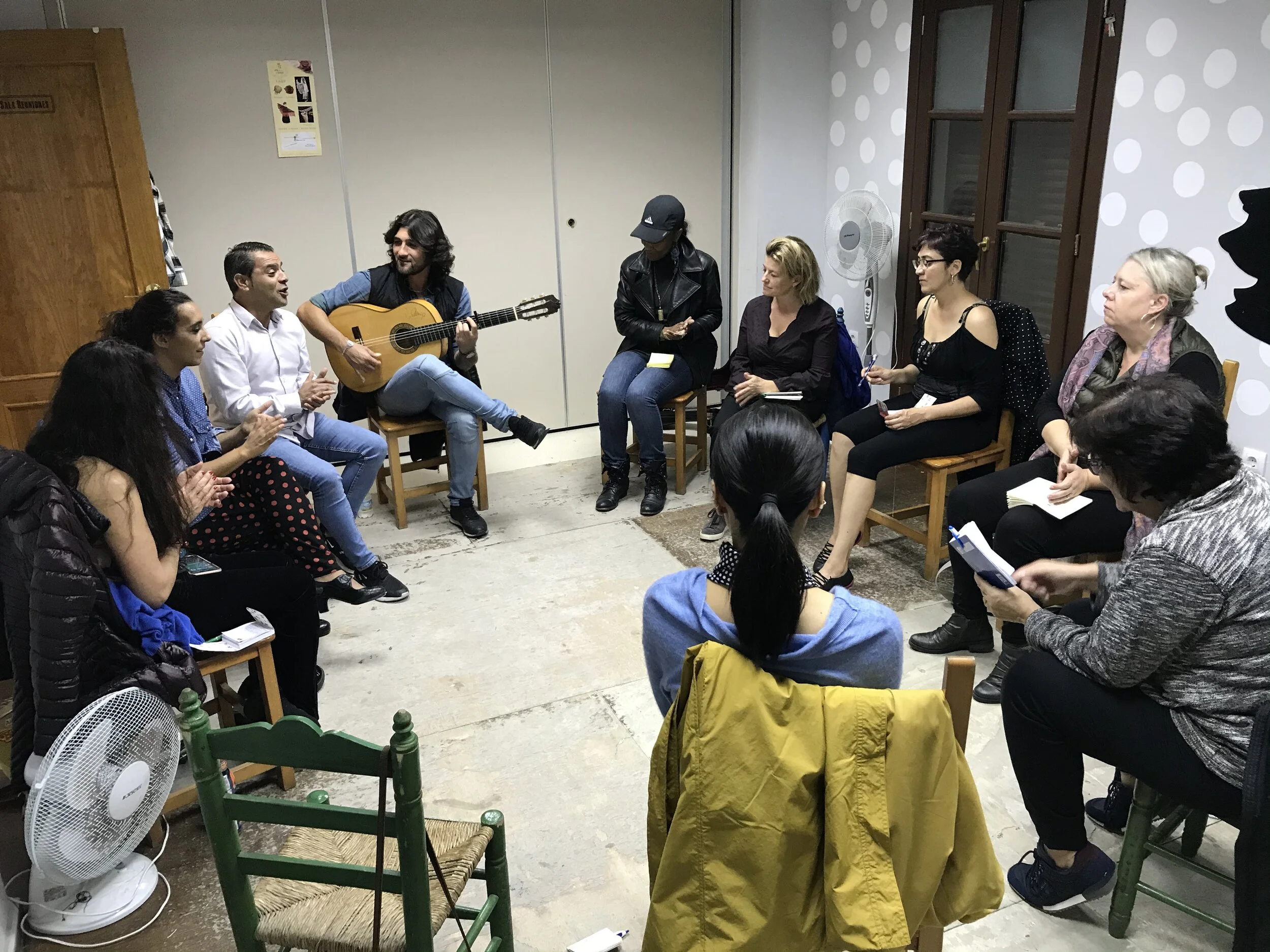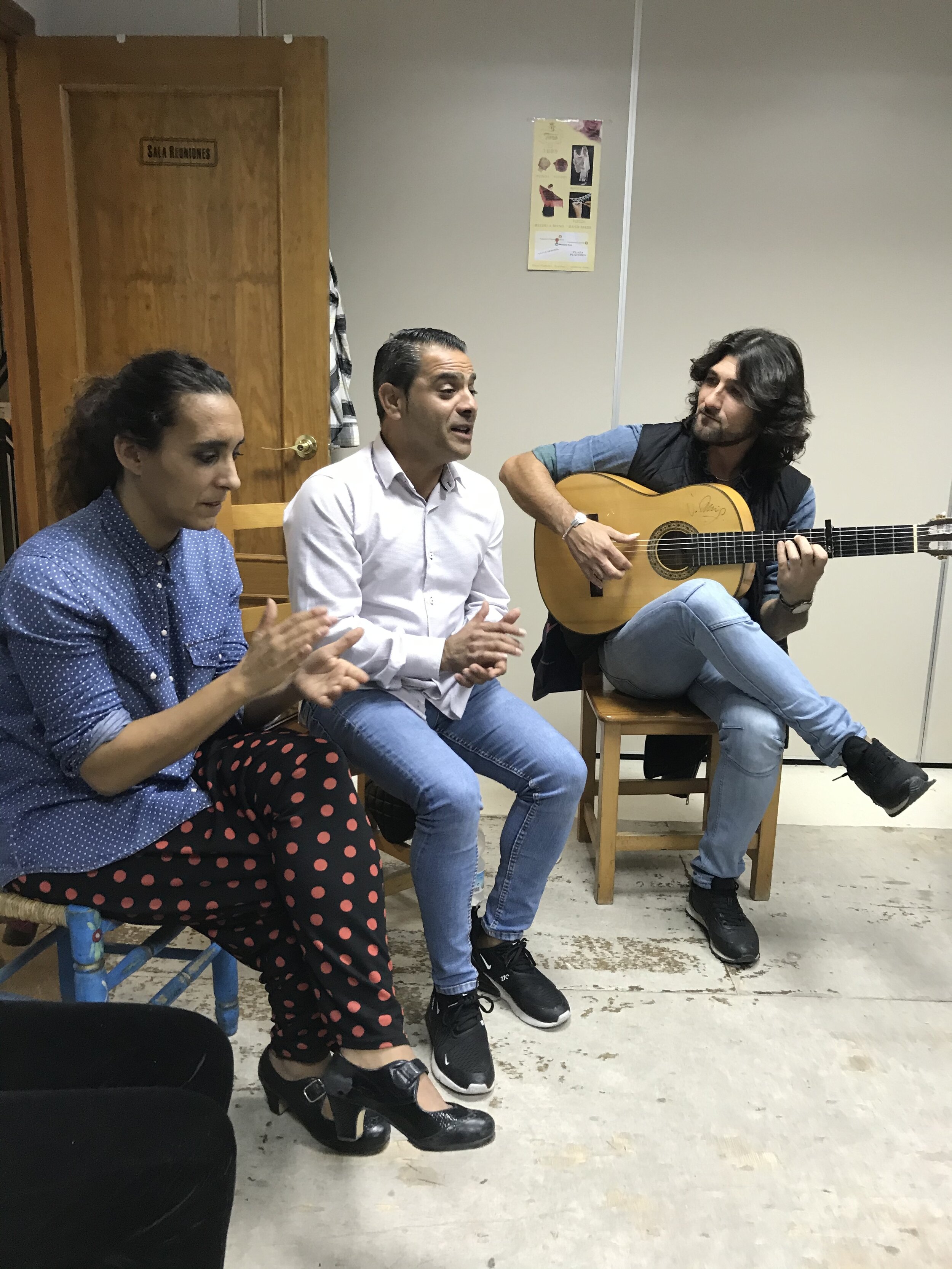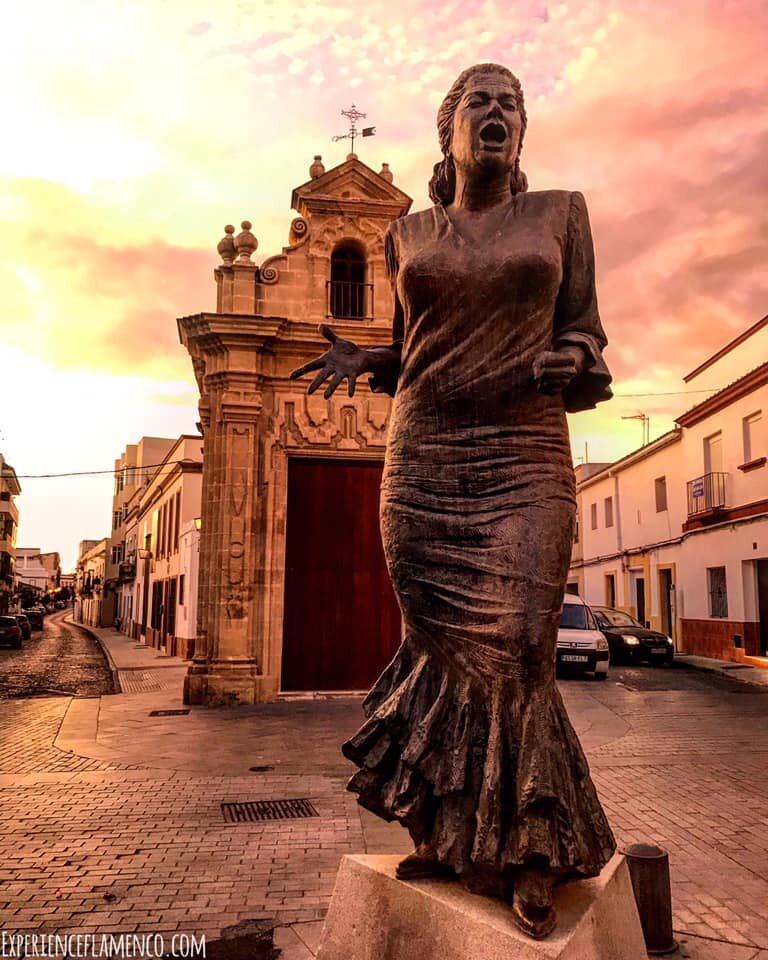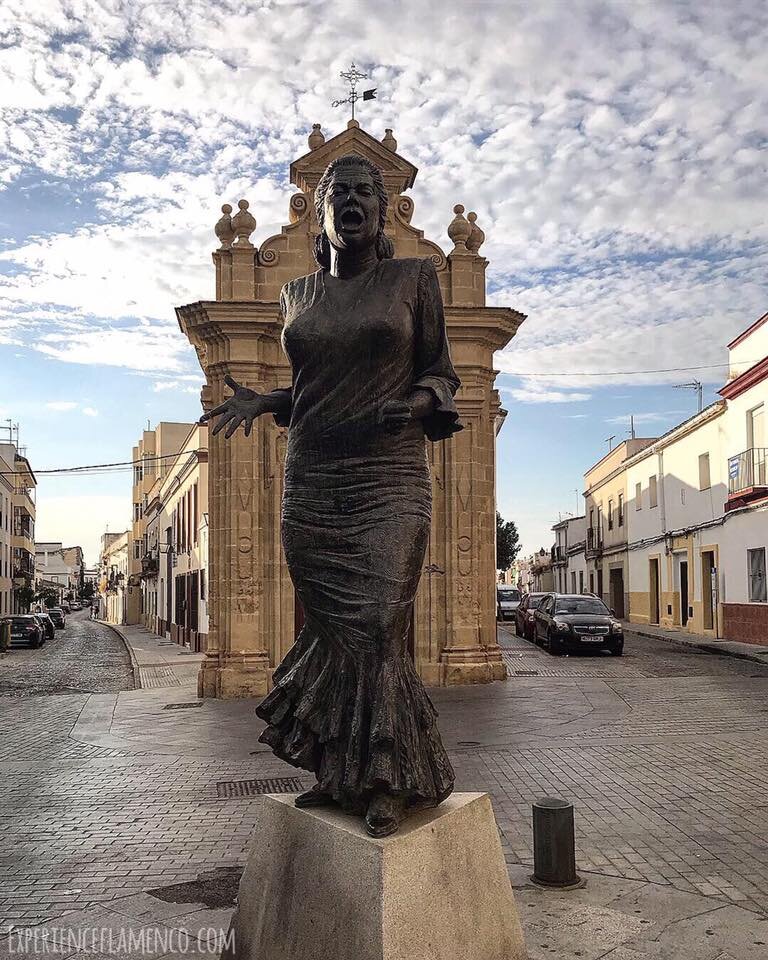Do you know how to dance bulerías to the cante?
This is what you’ll see Carmen Herrera doing in the video below as José Mijita sings and Carlos Grilo accompanies on guitar.
José sings the same letra two different ways, once straight and once stretching the cante. Carmen adapts her dancing accordingly while Carlos responds on guitar. (You can watch and respond with palmas.)
I took this video on the last Flamenco Tour to Jerez during our cante class.
It was so. much. fun.
José taught us a couple of letras which we tried our best to sing in compás, and Carmen demonstrated how to dance to the cante.
Before we get to the video, here is one of the letras we sang which is on José’s latest CD, Albariza*. He explained that this is a typical bulería corta de Jerez.
Bulerías
Traditional
No paso por la Plazuela
me da miedo de tu madre
que tiene muy mala lengua
I don’t go by the Plazuela*
I’m afraid of your mother
who’s always saying bad things*
Watch the video, and notice how Carmen and Carlos respond as José sings:
They are listening for José’s caídas. They don’t know when he’s going to resolve, so they listen carefully and respond. Carmen responds by doing an enganche. She could also choose to respond with a remate.
An Activity for You
OBJECTIVE: To train the ear to better respond to the cante when improvising
Watch the video again
Play palmas
When José resolves (does a caída) do a remote with your palmas.
The more you actively listen to cante and pay attention to what is happening the easier it will become to follow with your baile.
Variations in the cante
We also sang it with this variation of the second line which does not affect the meaning:
No paso por la Plazuela
miedo me da de tu madre
que tiene muy mala lengua
And here is the version as written in the CD leaflet which changes the meaning slightly:
Paso por la Plazuela
me da miedo de tu madre
que tiene muy mala lengua
I go by the Plazuela*
I’m afraid of your mother
she’s such a bad mouth
*Notes
*La Plazuela is a plaza in Jerez in the Barrio de San Miguel, also itself known as La Plazuela. In it stands a statue of La Paquera de Jerez which you can see in some of the photos below.
*José said in the letra, tener mala lengua, could mean she says bad things, is always gossiping about others, and/or is a bad mouth.
* Albariza is a white, chalky soil found in Southern Spain.
What did you see?
In the video you heard José singing the letra two different ways. What differences did you notice in Carmen’s dancing each time he sang? What was different about how he sang the letra the second time? What did she do differently when he changed the singing? What is she listening for? Let me know in the comments below!
I Think You’ll Also Enjoy
This letra, which we also studied and which I love SO much
And this coletilla which we studied a few years back with José
And this letra we learned from him on another past Flamenco Tour
And this one from but another Flamenco Tour where you’ll hear the students singing along
Finally, this video of Carmen dancing as José sings a cuplé. You’ll LOVE it.

